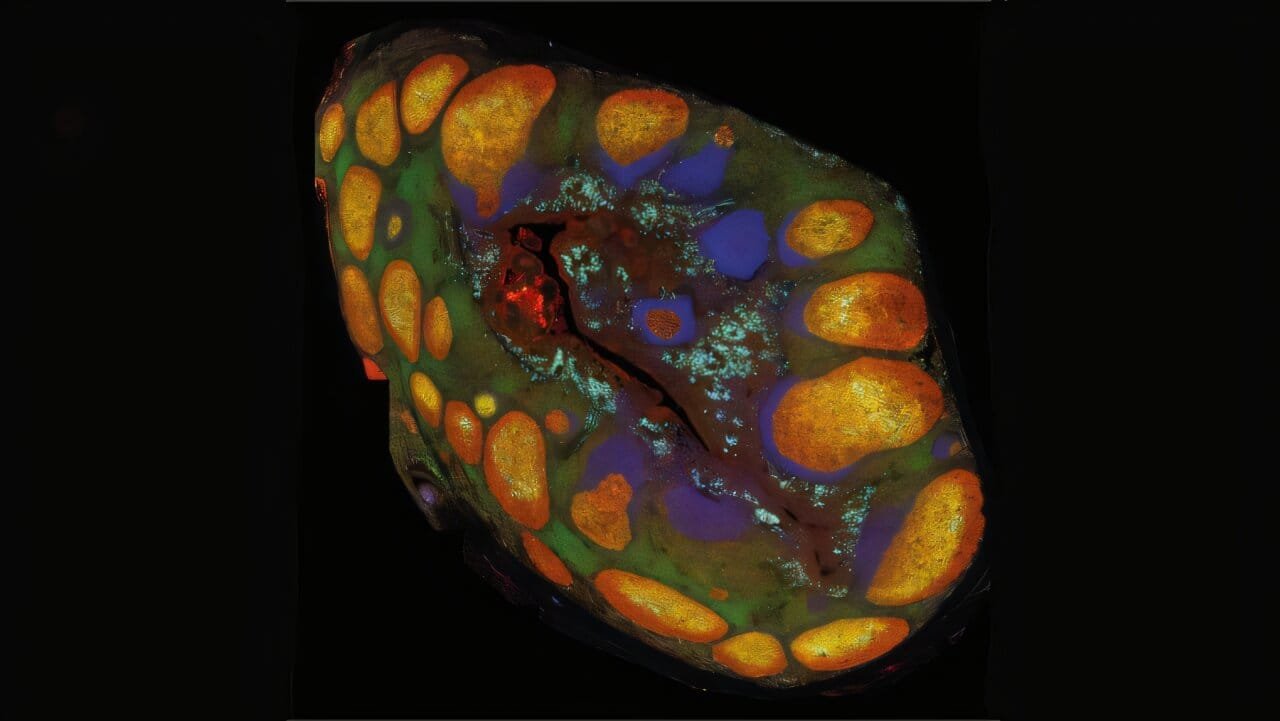A recent study by researchers at the Kennedy Institute of Rheumatology has highlighted the crucial role of asparagine metabolism in regulating B cell homeostasis and the broader immune response. These findings provide a deeper understanding of germinal center (GC) B cell functionality, shedding light on how metabolism influences immune effectiveness and identifying potential pathways for therapeutic interventions.
Germinal center B cells play an essential role in the immune system by producing highly refined antibodies that combat infections. These cells exhibit some of the highest rates of proliferation among mammalian cells. However, their metabolic behavior has long been a mystery, marked by unique characteristics that remain incompletely understood. The study, conducted by a team of researchers from the Kennedy Institute and collaborators, aimed to explore the metabolic intricacies of GC B cells. Their groundbreaking findings were recently published in Science Immunology.
Central to this research was asparagine, a non-essential amino acid that the team identified as a critical regulator of GC B cell function. While asparagine is categorized as “non-essential” because the body can produce it internally, the study revealed that its availability significantly impacts the health and efficiency of B cells.
“When asparagine is scarce, B cells struggle, leading to weakened GC B cell function,” explained Yavuz Yazicioglu, a KTPS DPhil student and the first author of the study. The team found that restricting asparagine levels—either through dietary changes or by administering an asparagine-depleting drug called Asparaginase—resulted in diminished GC B cell functionality. This, in turn, led to the generation of lower-quality antibodies during flu infections, especially in cells already compromised in their ability to produce asparagine.
The researchers delved deeper into the biological mechanisms underlying these findings. Alex Clarke, a Wellcome Trust Clinical Research Career Development Fellow and a senior researcher in the study, noted that asparagine deprivation had profound effects on the cells’ metabolism. “We found that when B cells were deprived of asparagine, they had reduced mitochondrial activity and building blocks such as nucleotides, suggesting asparagine sustains important metabolic processes in B cells,” Clarke said.
Mitochondria are critical organelles within cells that produce energy and support various metabolic processes essential for cell function and growth. For GC B cells, which need a substantial amount of energy and molecular resources to sustain their rapid proliferation and function, mitochondrial activity is particularly vital. The study revealed that asparagine is integral in maintaining these metabolic pathways, effectively supporting the cells’ ability to function optimally during immune responses.
The broader implications of these findings extend beyond the immediate understanding of germinal center B cells. Clarke highlighted the potential for leveraging asparagine metabolism as a target for medical interventions. “Our work highlights asparagine metabolism as a metabolic vulnerability in B cells that can be targeted to tackle diseases such as autoimmunity or malignancies with abnormal B cell immune responses,” he explained.
This research opens the door to new therapeutic approaches that could manipulate asparagine levels to influence immune responses. Autoimmune diseases, characterized by the immune system mistakenly attacking the body’s own tissues, could benefit from interventions targeting B cell metabolism. Similarly, cancers involving abnormal B cell activity, such as certain types of lymphoma and leukemia, may be treated by exploiting the metabolic vulnerabilities identified in this study.
The use of Asparaginase, a drug that depletes asparagine, already has a precedent in cancer treatment, particularly for acute lymphoblastic leukemia (ALL). The findings from this research suggest that similar strategies could be applied to modulate immune responses in other contexts, including infectious diseases and autoimmune disorders. However, the study also raises important questions about potential side effects, as depriving B cells of asparagine could weaken overall immune responses and leave the body vulnerable to infections.
Beyond potential applications in disease treatment, this research underscores the complex interplay between diet, metabolism, and immune function. Asparagine is naturally found in a variety of foods, including dairy products, meat, eggs, nuts, seeds, asparagus, and legumes. The study’s findings may eventually inform dietary recommendations aimed at optimizing immune health or managing specific medical conditions.
The identification of asparagine’s role in B cell function also provides a foundation for further exploration into other metabolic dependencies in immune cells. While GC B cells are the focus of this study, other immune cells may also have unique metabolic requirements that could similarly be targeted to influence their behavior. This growing field of immunometabolism has the potential to revolutionize how we understand and treat a wide range of diseases, from infections and inflammation to cancer.
Moreover, the study reflects a larger trend in modern biology that emphasizes the importance of metabolism in cellular function. Once considered a mundane backdrop to cellular processes, metabolism is now recognized as a dynamic and influential factor in virtually every aspect of cell biology. By focusing on the metabolic needs of immune cells, researchers are uncovering new ways to manipulate the immune system with precision.
Reference: Yavuz F. Yazicioglu et al, Asparagine availability controls germinal center B cell homeostasis, Science Immunology (2024). DOI: 10.1126/sciimmunol.adl4613
Think this is important? Spread the knowledge! Share now.
